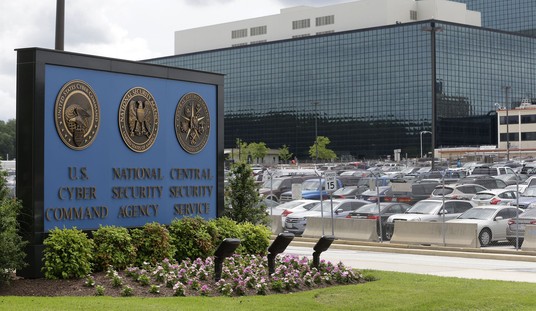At the height of the COVID-19 pandemic, Congress offered states more federal dollars to help pay for their growing Medicaid rolls. Distracted by the crisis in front of them, many state leaders hardly even noticed the handcuffs that were slipped on as the extra cash changed hands.
But more federal funding inevitably means more federal control—and now states are realizing they have been locked into a Medicaid straitjacket, with only one option to break free and restore program integrity: opt out.
Under the Families First Coronavirus Response Act, Congress gave states an additional 6.2 percent of federal funding for states’ traditional Medicaid populations. The tradeoff? States had to agree not to raise premiums, strengthen eligibility standards, or even remove disqualified individuals from the Medicaid program.
Unsurprisingly, Medicaid enrollment soared throughout the pandemic. Millions of businesses closed their doors and workers were forced to stay home, drastically adding otherwise hardworking Americans to the welfare rolls. From March to December 2020 alone, Medicaid enrollment increased by 12 percent, bringing total Medicaid enrollment above 83 million for the first time in the program’s history.
Combined with Congress’s increased unemployment insurance (UI) benefits—which initially didn’t count toward Medicaid’s income requirements—the demographics of Medicaid beneficiaries also drastically changed. Individuals collecting unemployment benefits amounting to a $50,000 per year salary became eligible for Medicaid, leapfrogging the truly needy for whom the program was originally intended. And now states feel like they’re in the trash compactor scene in Star Wars: Increased UI benefits put more pressure on Medicaid enrollment, and since states cannot remove anyone from the program, they’re feeling squeezed from all sides.
Recommended
Our new research at the Foundation for Government Accountability shows that Medicaid rolls desperately need eligibility reviews and redeterminations to adjust enrollees’ benefit categories or remove them from the program altogether. In just 14 states, more than 3 million Medicaid beneficiaries had their redeterminations delayed, and in just eight states, more than 2 million individuals are entirely ineligible or in the wrong benefit category.
In Illinois, for example, nearly 1 million redeterminations have been postponed—meaning more than one-third of the state’s Medicaid enrollees may not actually be qualified to receive benefits. In Maine, nearly 60 percent of their total Medicaid population is waiting for a renewal.
States are seeing massive over-enrollment, the potential for Medicaid fraud, and the inability to restore Medicaid to its rightful scope and size. These problems far outweigh any meager benefit of the federal government forking out an extra 6.2 percent to pay for Medicaid benefits.
Federal strings requiring states to diminish their programs’ integrity standards may have seemed like a peripheral concern at the height of the pandemic, but now that a recovery is well underway, states are beginning to realize these strings are made of steel.
Being handcuffed to Leftist principles that suggest anyone should be allowed to enroll in Medicaid—even if they don’t meet the eligibility standards—is putting undue pressure on states’ welfare systems at a time when we need all available hands on deck for a strong economic recovery. Despite the Medicaid handcuffs, states hold the key to break free of these restraints: State lawmakers must immediately opt out of increased federal Medicaid payments to restore Medicaid integrity.
Hayden Dublois is the senior research analyst at the Foundation for Government Accountability.

























Join the conversation as a VIP Member